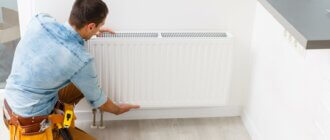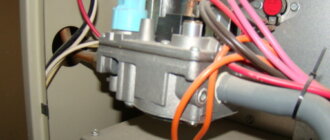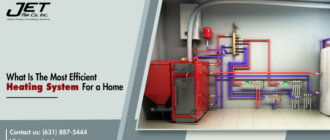How does a heat pump work?
Are you tired of high heating bills during the winter months? Or maybe you dread those scorching summer days when your home becomes a sauna? If so, it might be time to consider investing in a heat pump. Not only can this innovative technology help keep your home comfortable year-round, but it’s also an eco-friendly alternative to traditional HVAC systems. But before you take the plunge and purchase one for yourself, it’s important to understand how they work and what factors to consider. In this blog post, we’ll explore everything from the science behind heat pumps to their advantages and disadvantages. So sit back and get ready to learn all about how these machines transfer heat – both inside and outside of your home!
What is a Heat Pump?
A heat pump is a mechanical device that transfers thermal energy from one area to another. Simply put, it moves heat from one location to another instead of generating new heat like a furnace or air conditioner.
Heat pumps come in several types: air source, geothermal, and water source. Air-source pumps are the most common type and work by extracting heat from the outdoor air during winter months to warm your home. In the summer, they extract the warm air inside your home and transfer it outside using refrigerant coils.
Geothermal systems use underground pipes filled with liquid to exchange heat with the ground year-round while water-source pumps use bodies of water as their primary heating or cooling source.
The science behind how a heat pump works involves utilizing refrigerants which absorb and release thermal energy as they change states between liquid and gas forms. This process allows for efficient heating in colder temperatures compared to traditional furnaces.
Understanding what a heat pump is can help homeowners make informed decisions about their HVAC system options.
Types of Heat Pumps
Heat pumps come in different types, each designed to suit specific heating and cooling needs. The most common types of heat pumps include air-source, ground-source (geothermal), absorption, and ductless mini-split systems.
Air-source heat pumps are the most popular type of heat pump. They work by absorbing heat from the outdoor air during winter and transferring it indoors for heating purposes. Conversely, they absorb indoor heat during summer and release it outdoors for cooling.
Ground-source or geothermal heat pumps are more efficient than air-source systems because they rely on stable underground temperatures to provide year-round temperature control. They use pipes buried under the ground to transfer thermal energy between the earth’s surface and your home.
Absorption heat pumps are less common but highly effective at providing both heating and cooling services using natural gas or propane instead of electricity as their power source.
Ductless mini-split systems consist of an outdoor compressor unit connected to one or more wall-mounted units placed inside individual rooms or zones within a building. These types of devices allow you to customize your comfort levels according to each zone’s unique requirements without losing efficiency due to duct losses.
When choosing a suitable type of device for your home, consider various factors such as climate conditions in your area, available space for installation, budget constraints, compatibility with existing HVAC equipment among other things.
Advantages and Disadvantages of Heat Pumps
Heat pumps offer several advantages over traditional heating and cooling systems. One of the main benefits is their energy efficiency, as they move heat instead of generating it, resulting in lower energy bills for homeowners.
Another advantage is their versatility, as heat pumps can both heat and cool homes depending on the season. This eliminates the need for separate heating and cooling systems, saving space and reducing installation costs.
However, there are also some disadvantages to consider before investing in a heat pump. One potential drawback is that they may not be suitable for extremely cold climates where temperatures consistently fall below freezing. In such areas, a backup heating system may be necessary to ensure adequate warmth during winter months.
Additionally, initial installation costs can be higher than traditional HVAC systems due to the complexity of the technology involved in heat pump operation. However, long-term savings on energy bills can offset these upfront expenses over time.
Weighing advantages versus disadvantages will help you determine whether a heat pump is right for your home’s unique needs.
Factors to Consider When Choosing a Heat Pump
When choosing a heat pump, there are several factors to consider in order to maximize its efficiency and effectiveness. First, you need to determine the size of the unit that will work best for your home or building. A heat pump that is too small won’t be able to meet your heating and cooling needs, while one that is too large can waste energy and money.
Another important factor is the type of refrigerant used in the heat pump. Some refrigerants are better for the environment than others, so it’s important to choose one with low global warming potential (GWP). Additionally, you should consider the noise level of the unit, especially if it will be installed near living spaces.
You also need to consider your climate zone when selecting a heat pump. Different models are designed for various temperature ranges and climates. For example, some can provide efficient heating even in cold temperatures below freezing.
You should look at additional features such as programmable thermostats and variable-speed motors that can help improve energy efficiency further. By considering these factors when choosing a heat pump, you’ll be able to select a model that meets all your needs while keeping costs down and minimizing environmental impact.
Heat Pump Maintenance and Tips for Maximizing Efficiency
Heat pumps are a great way to efficiently heat and cool your home, but like any heating or cooling system, they require regular maintenance to ensure they’re operating at peak efficiency. One of the most important things you can do for your heat pump is to regularly clean or replace the air filter. A dirty filter can cause your heat pump to work harder than necessary, leading to higher energy bills and potentially even damage over time.
Another key area of focus when it comes to maintaining your heat pump is keeping the outdoor unit clear of debris such as leaves or sticks that could obstruct airflow. You should also make sure that the indoor vents are unobstructed by furniture or other objects so that air can flow freely throughout your home.
Regular professional maintenance from a qualified HVAC technician is also recommended at least once per year. During this appointment, they’ll inspect all components of the system including refrigerant levels and electrical connections, ensuring everything is in good working order.
To maximize efficiency with a heat pump system, consider installing a programmable thermostat so you can set temperatures based on when you’re typically at home versus away. This will help reduce energy usage during times when you don’t need as much heating or cooling.
In addition, proper insulation and sealing around windows and doors will help keep warm air inside during winter months while preventing hot air from entering during summer months. By taking these steps towards maximizing efficiency through maintenance and smart usage habits, homeowners can enjoy lower energy bills without sacrificing comfort in their homes.
Conclusion
Heat pumps are an excellent option for both heating and cooling your home or business. They work by utilizing the heat transfer process to move warm air from one place to another, rather than generating hot or cold air like traditional HVAC systems.
By choosing a high-quality heat pump that is properly sized for your space and considering factors such as climate and energy efficiency ratings, you can enjoy significant cost savings on your energy bills while also reducing your carbon footprint.
Regular maintenance of your heat pump is crucial in ensuring its longevity and maximum efficiency. By following our tips for maintaining and optimizing performance, you can be sure that your system will continue to provide reliable comfort year-round.
Investing in a heat pump is a smart choice that offers numerous benefits for both homeowners and business owners alike. With their ability to efficiently cool or heat spaces using renewable energy sources, they are quickly becoming the go-to solution for sustainable climate control.



